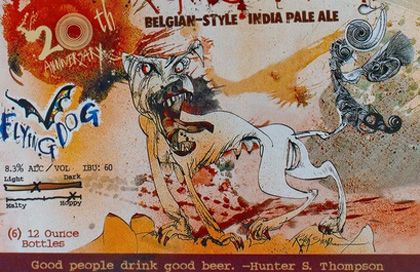Archaeologists have discovered proof that residents of southeastern France were making beer at home during the Iron Age.
Laurent Bouby from the Centre de Bio-Archeologie et d’Ecology in Montepellier, France, and colleagues unearthed the evidence of brewing in Mediterranean France as far back as the fifth century. Studying material collected at the Roquepertuse excavation site in Provence they found poorly preserved barley grains, suggesting germination, as well as equipment and other remains of deliberate malting in the home. Taken together, these findings suggest that, as well as regular wine making, the French had an early passion for beer brewing. The work has just been published online in Springer’s journal Human Ecology.
Previously, researchers had only found evidence of wine production in the region. Bouby and team analysed three samples of sediment from excavations carried out in the 1990s. One sample was taken from the floor of a dwelling, close to a hearth and oven. The other two samples came from the contents of a ceramic vessel and from a pit. There were carbonized plant remains in all three samples, dominated by barley.
The barley grains identified were poorly preserved and predominantly sprouted (90 percent of the sample), suggesting that they were carbonized at the end of the malting process and before the grinding of dry malt. The neighboring oven is likely to have been used to stop the germination process at the desired level for beer making, by drying and roasting the grain.
Based on the equipment found at the Roquepertuse dwelling, the authors suggest that the habitants soaked the grain in vessels, spread it out and turned it during germination on the flat paved floor area, dried the grain in the oven to stop germination, and used domestic grindstones to grind the malted grain. Then hearths and containers were likely used for fermentation and storage.
The authors conclude: “The Roquepertuse example suggests that beer was really produced within the context of domestic activities. Compared to other archaeobotanical and archaeological evidence, it contributes to portraying a society which combined an intricate use of various alcoholic beverages including beer, which was probably of long-standing local tradition, and wine, which was, at least in part, promoted by colonial contacts with Mediterranean agents.”

 The Illinois Craft Brewers Guild (ICBG) stands in opposition to an amendment to Senate Bill 754 that hurts the state’s small brewers.
The Illinois Craft Brewers Guild (ICBG) stands in opposition to an amendment to Senate Bill 754 that hurts the state’s small brewers.